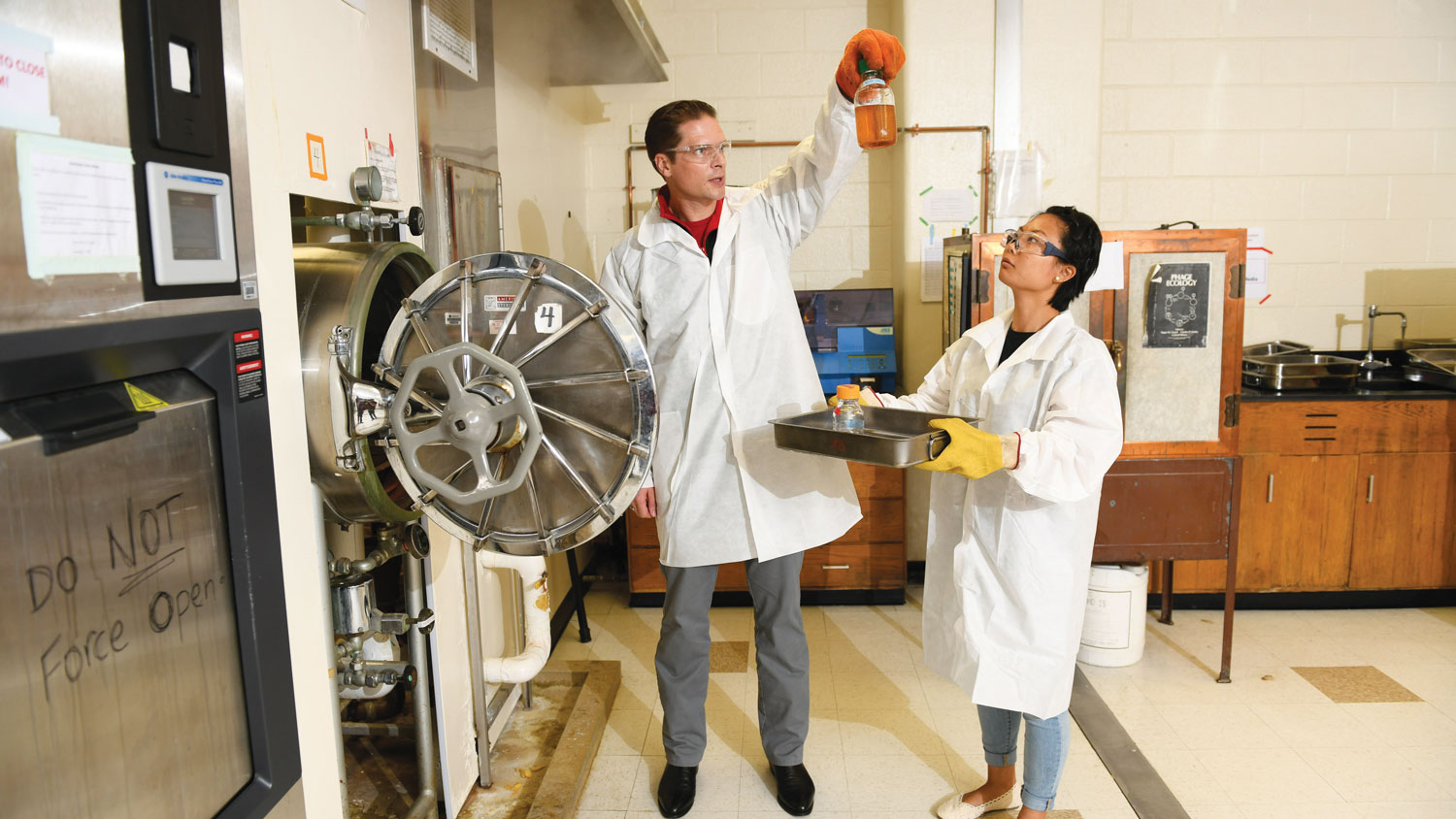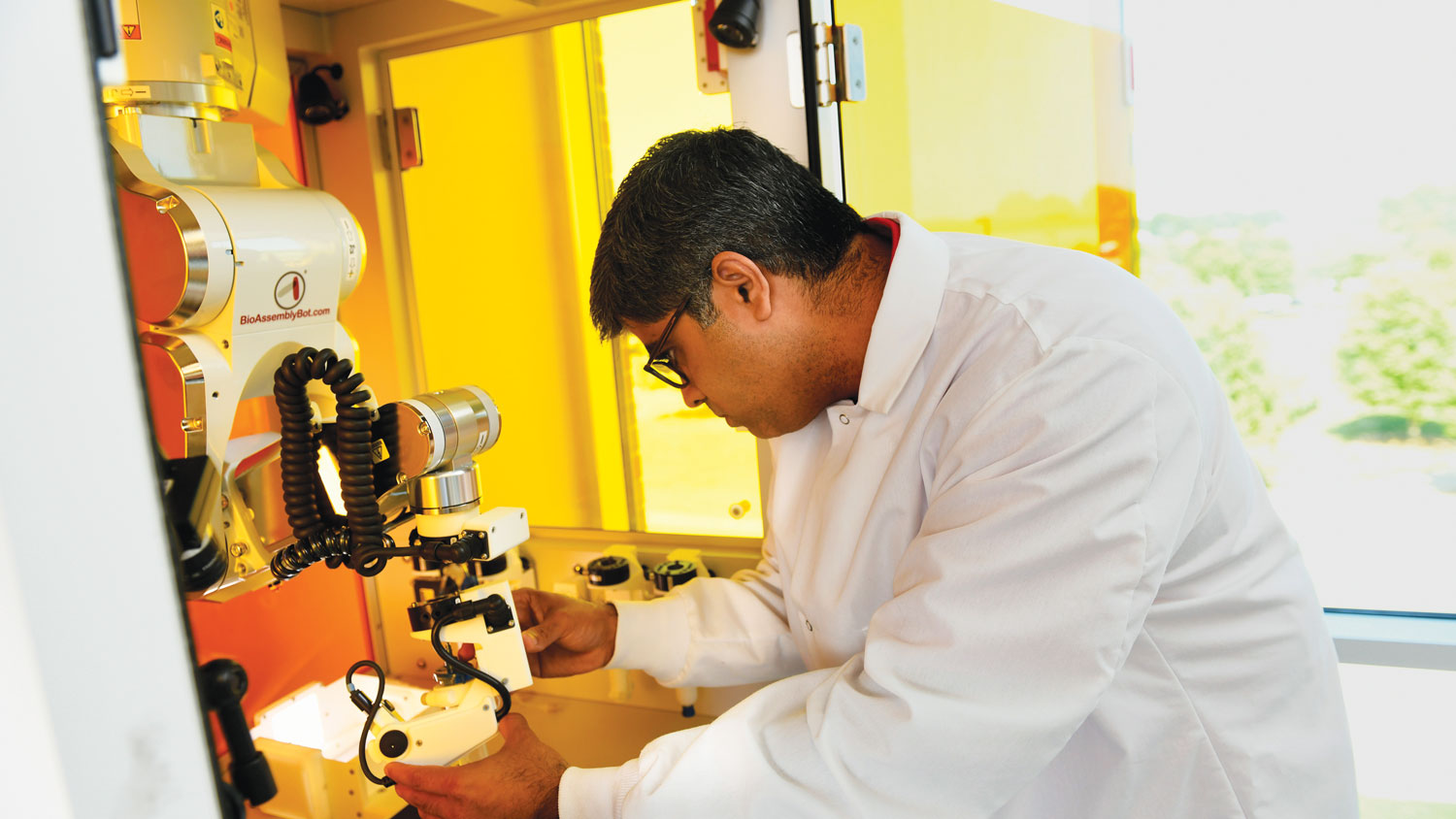NC State Is Innovative
We’re constantly leaning forward, developing new ideas and advanced technologies that will shape the future.

Fighting Infection at the Genetic Level
The seeds of Locus Biosciences — a biotechnology startup that recently won a major round of funding from Janssen Pharmaceuticals, a Johnson & Johnson company — were planted at NC State. Two of the Morrisville-based company’s scientific founders, Rodolphe Barrangou and Chase Beisel, are faculty members in our departments of Food, Bioprocessing and Nutrition Sciences and Chemical and Biomolecular Engineering, respectively. Barrangou is also a member of the National Academy of Sciences and the National Academy of Engineering.
Locus is a leader in developing precision antibacterial therapies that use CRISPR gene-editing technology to kill harmful bacterial pathogens in the human body while leaving our “good” bacteria unharmed. The funding agreement calls for Janssen and Locus to collaborate in developing, manufacturing and commercializing a CRISPR-Cas3-enhanced bacteriophage that targets a key bacterial pathogen responsible for infections of the respiratory tract and other organ systems.
If the new product is proven safe and effective in clinical trials, it could mark a turning point in the global battle against antibiotic-resistant infections, which claim 23,000 lives each year in the U.S. alone.
$373M
#2in commercialization of research
#4in the nation
170+startups and spinoffs

Damaged Tissues? Print Some New Ones
The surgical process for repairing injured tendons and ligaments has become fairly routine, but now a research team in NC State’s Joint Department of Biomedical Engineering is exploring the potential of using regenerative medicine to repair damaged tissues by growing new ones.
The Forging Interdisciplinary Bio-inspired Engineered Regenerative Science (FIBERS) team is focused on using 3D printing and nonwoven fibers to create new tissues that can grow in the human body. The group includes researchers with expertise in biomedical and industrial engineering, textiles and veterinary medicine.
When the team reached the limits of what existing 3D printing and nonwoven manufacturing could do, rather than give up they extended the realm of the possible by building what is essentially an advanced 3D printer. The new machine’s increased control over the architecture, orientation and size of the fibers it produces allows the team to build structures that better match the natural fibers they’re aiming to replace and regrow.